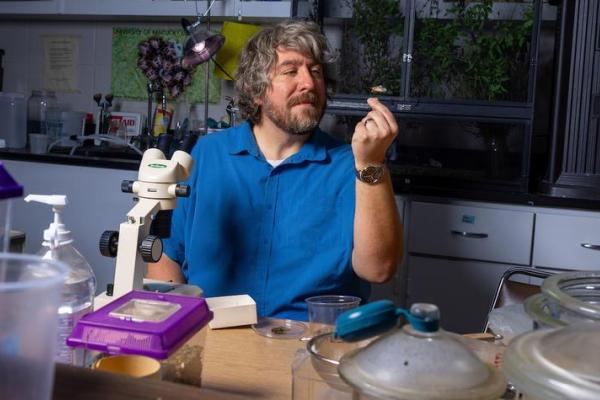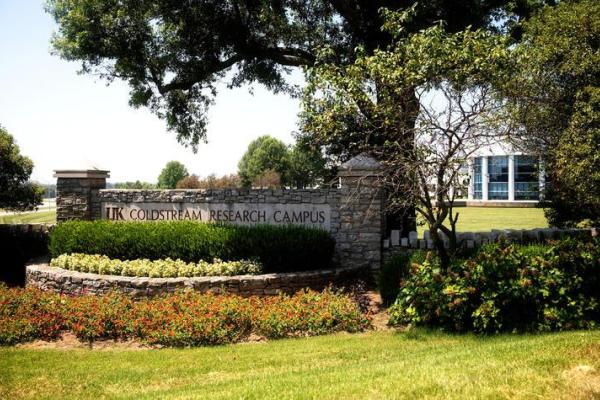UK students get hands-on experience with coral reef ecosystems
What can be learned from a deep dive? For students in the Embedded: Advanced Scuba Certification and Coral Reef Ecology course, it’s the opportunity to earn numerous scuba certifications, while learning about the impact of environmental stress on coral reef ecosystems. And because there are no coral reefs to explore in Kentucky, the laboratory is housed in the beautiful Mesoamerican Reef region of the Caribbean Sea.
Lou Hirsch, a faculty member in the UK College of Agriculture, Food and Environment, created the course to put his students in an environment where they can fully engage with their research and clearly understand why it matters.
“Scuba diving is just doing stuff with your hands and feet. It happens to be underwater. Science is just doing stuff with your hands and feet. This is just at a lab bench with scuba,” said Hirsch. “What I've always really liked about it is that everyone's excited to learn because it's approachable, it's structured in a way where we kind of build upon previous skill development and it's just fun.”
The course allows students hands-on experiences with ecological concepts and important natural resource issues in coral reef environments while earning relevant scuba diving certifications. Hirsch covers coral reef conservation, fish identification and quantification, underwater surveying, turtle biology, ecologically sensitive diving techniques, ecotourism, and the impact of globalization and climate change.
“The fact that we were able to go into like the coral nursery and just kind of get an up-close look at it and actually play a part in its growth was just, I mean, surreal,” said Holli Goff, a UK junior who participated in the dive.
Hirsch has been a professional scuba instructor since he was 18. He is currently an assistant professor in the Department of Plant Pathology, studying microbial pathogens of plants.
To learn more about the course and student experience, watch the video above.
Credits
C.E. Huffman and Steve Shaffer (Public Relations & Strategic Communications)

